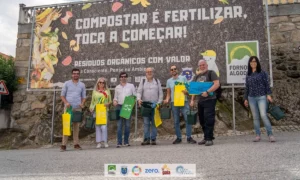Ready to lead Europe towards a zero waste future
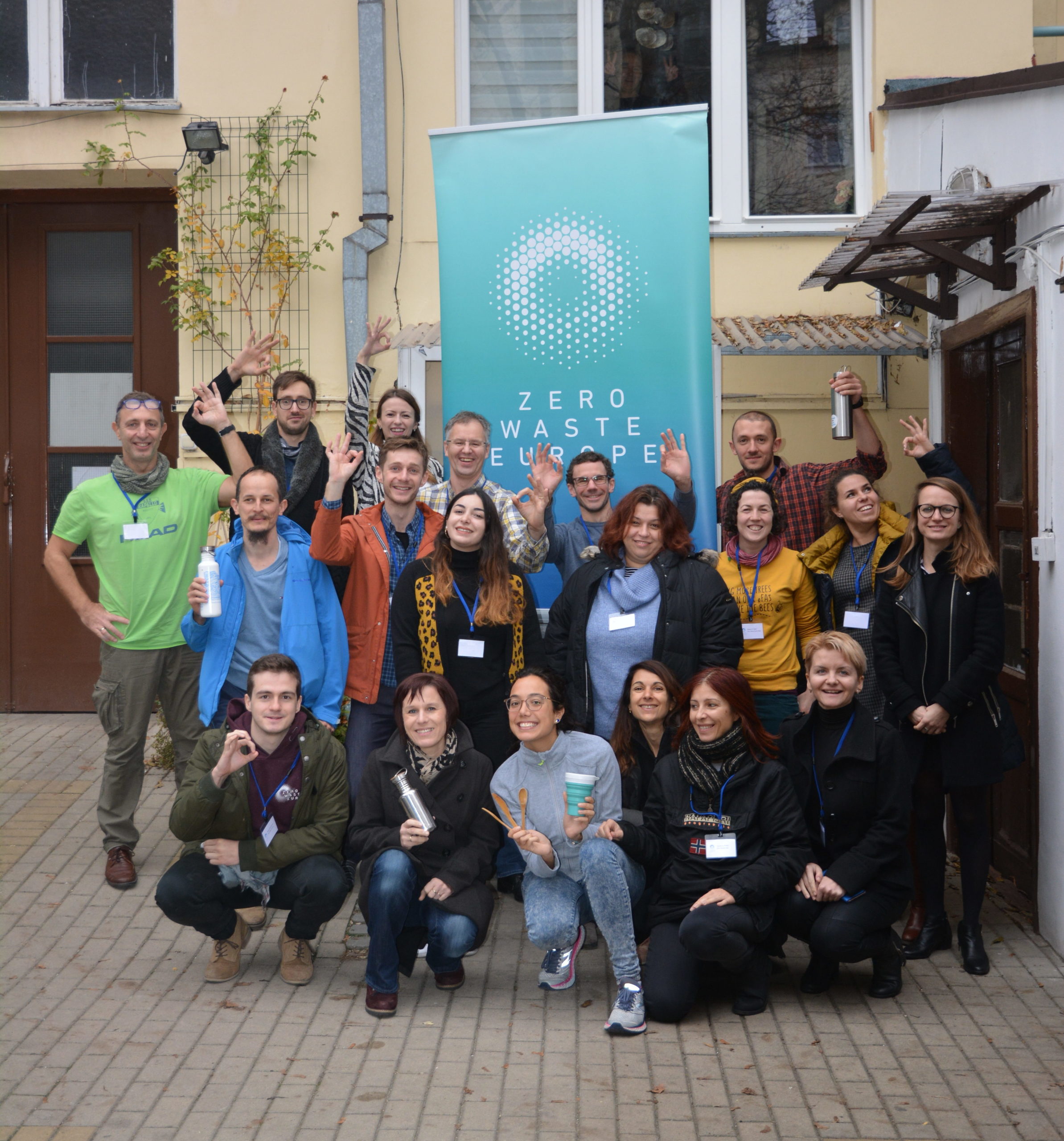
Surrounded by charming cobblestone streets and beautiful cathedrals, participants from 16 countries within the Zero Waste Europe Network met in the beautiful city of Prague, in the Czech Republic last week. For two days, members together with Zero Waste Europe staff shared their knowledge and experiences from their efforts to support the implementation of zero waste policies within their community.
This gathering of members from Zero Waste Europe was designed for connecting with one another, identifying key issues that prevent further progress from being made towards zero waste in Europe, and creating plans and a platform to find solutions to address these barriers to further success.
The Zero Waste Cities Programme Coordinator, Jack McQuibban, began the meeting by setting the scene and sharing the latest updates on EU waste and circular economy legislation, highlighting the impact this legislation will have and is already having on the work members do at the local level. The discussion focused on three key topics, including the challenges and opportunities related to the implementation of the EU Single-Use Plastic (SUP) Directive, the requirements on EU member states regarding the separate collection of waste and the latest developments which show how the EU is beginning to move away from waste incineration. Enzo Favoino, chair of Zero Waste Europe’s Scientific Committee, also presented on the opportunities for municipalities to avoid increasing incineration capacity, by implementing effective recycling and waste prevention policies instead, ahead of the EU’s requirement that member states landfill no more than 10% of their waste by 2035.
Enzo Favoino, chair of Zero Waste Europe’s Scientific Committee, also presented on the opportunities for municipalities to avoid increasing incineration capacity, by implementing effective recycling and waste prevention policies instead, ahead of the EU’s requirement that member states landfill no more than 10% of their waste by 2035.
Thibault Turchet, legal affairs supervisor at Zero Waste France added some extra value to the conversation by presenting the latest book from Zero Waste France, “Zero Waste Municipalities”, a practical guide to transforming waste management at the local level (read more here). The book was written ahead of the local municipal elections happening in France in March 2020, and expertly breaks down the concept of zero waste and how municipality officials can implement effective strategies at the local level.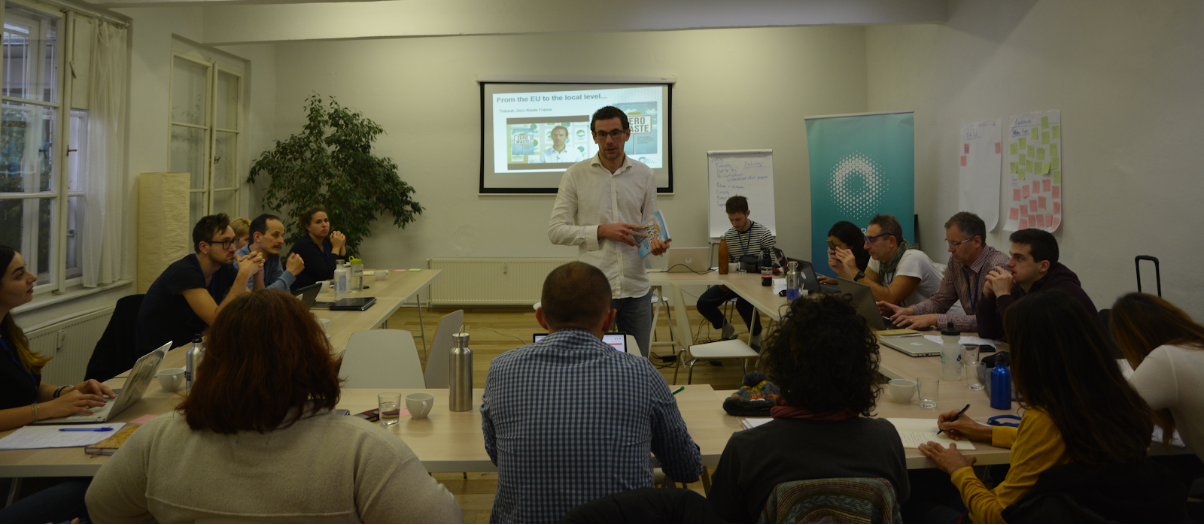 During the afternoon, participants were divided into two groups and began working on defining potential next steps and future campaigns around two key topics – supporting municipalities to implement the EU’s SUP directive at the local level, through initiatives such as Deposit Return Systems; and identifying the best tools and policies to support municipalities implement effective separate collection programmes in order to meet the mandatory EU requirement of organic waste collection by 2023.
During the afternoon, participants were divided into two groups and began working on defining potential next steps and future campaigns around two key topics – supporting municipalities to implement the EU’s SUP directive at the local level, through initiatives such as Deposit Return Systems; and identifying the best tools and policies to support municipalities implement effective separate collection programmes in order to meet the mandatory EU requirement of organic waste collection by 2023.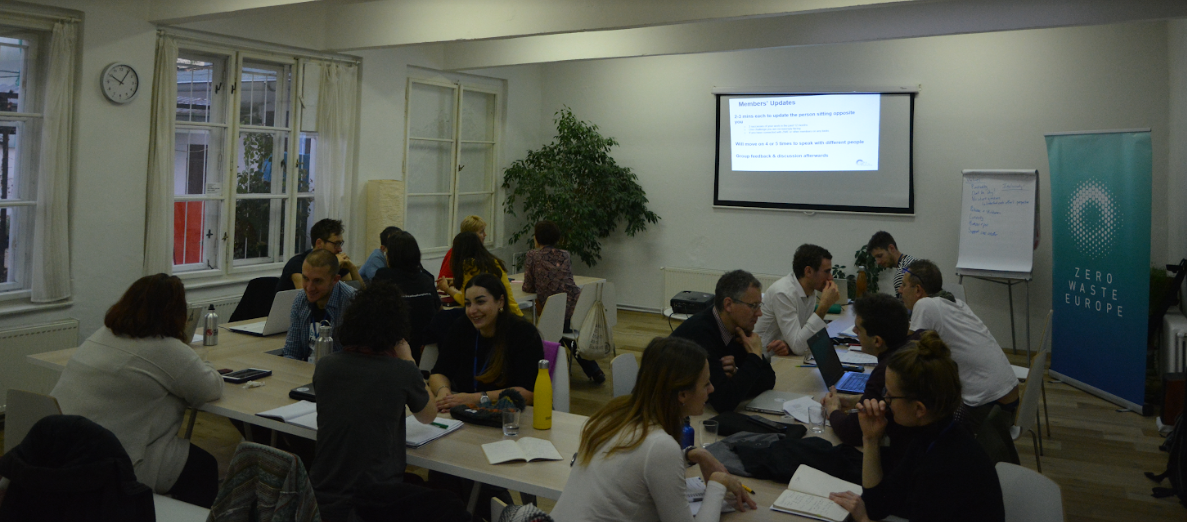 Day two began with a presentation from Jaka Kranjc at Ecologists Without Borders Slovenia, which he delivered during the Study Tour in Slovenia earlier this year, to provide participants with some practical tools on how to design a zero waste plan. From support on collecting baseline data to best practices on how to engage the local community, the session provided a template that members can use to run workshops and trainings with their local municipalities in order to build awareness around the practicalities of implementing a local zero waste strategy.
Day two began with a presentation from Jaka Kranjc at Ecologists Without Borders Slovenia, which he delivered during the Study Tour in Slovenia earlier this year, to provide participants with some practical tools on how to design a zero waste plan. From support on collecting baseline data to best practices on how to engage the local community, the session provided a template that members can use to run workshops and trainings with their local municipalities in order to build awareness around the practicalities of implementing a local zero waste strategy.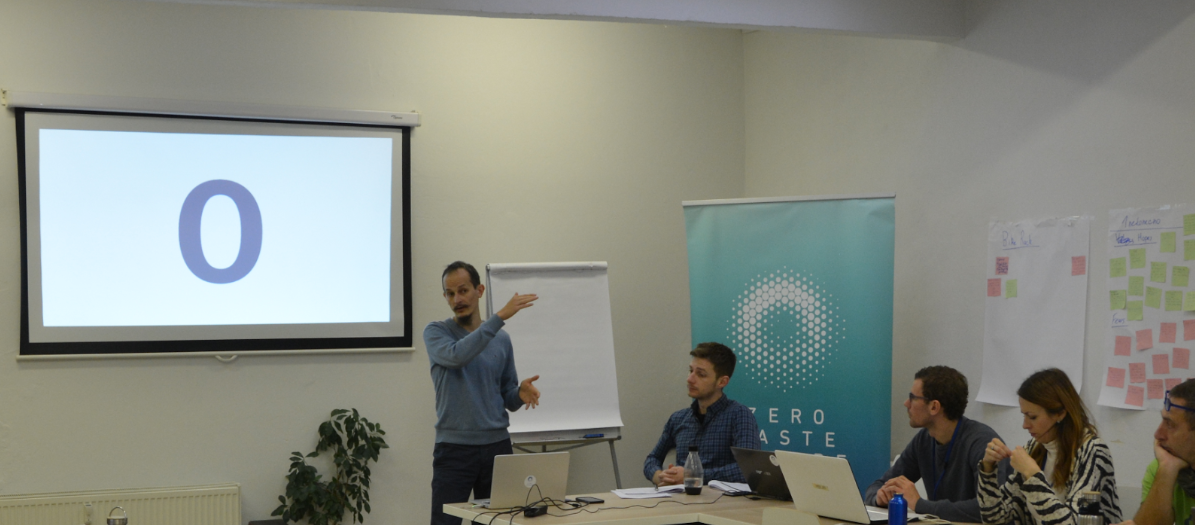 In the afternoon, the campaigners had the opportunity to visit Minimum Waste, the first packaging-free shop opened in Prague by MIWA. Indeed, MIWA is a unique technology that is being adopted to help producers, retailers and households prevent the creation of waste across the supply chain. MIWA is a great example of how innovative business models are helping the transition towards zero waste all across Europe and beyond – keep your eyes peeled for a case study on MIWA in the not too distant future!
In the afternoon, the campaigners had the opportunity to visit Minimum Waste, the first packaging-free shop opened in Prague by MIWA. Indeed, MIWA is a unique technology that is being adopted to help producers, retailers and households prevent the creation of waste across the supply chain. MIWA is a great example of how innovative business models are helping the transition towards zero waste all across Europe and beyond – keep your eyes peeled for a case study on MIWA in the not too distant future!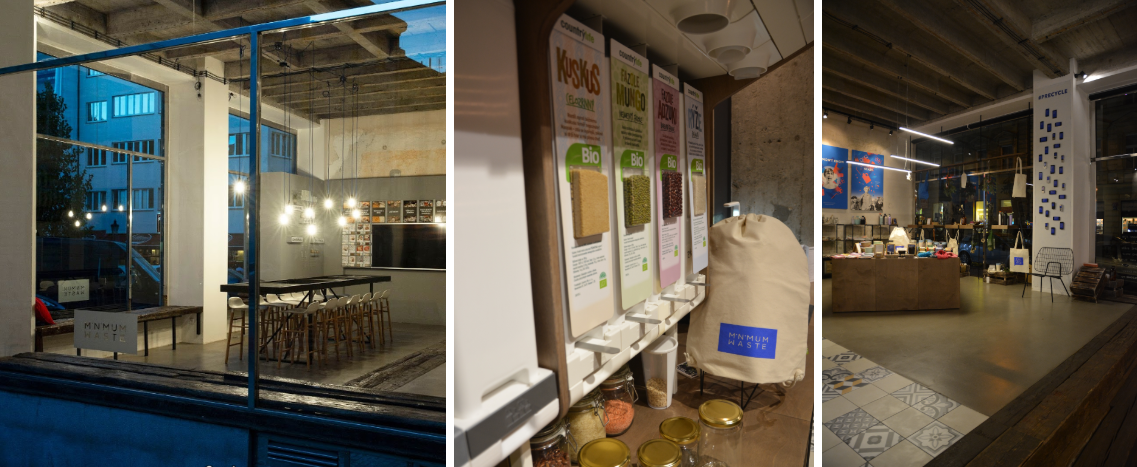
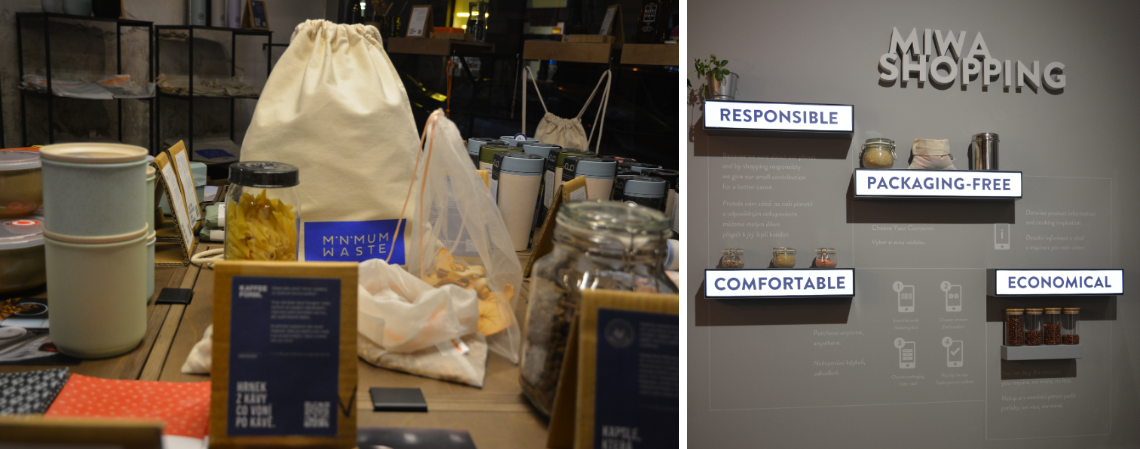 The meeting of our campaigners in Prague provided two days of inspiring discussions and fruitful exchanges on what we can do to turn off the flow of waste into our society directly at the tap. Campaigners shared their expertise and knowledge, forging stronger links between what happens in Brussels at the European level and the work that is done by members locally with municipalities.
The meeting of our campaigners in Prague provided two days of inspiring discussions and fruitful exchanges on what we can do to turn off the flow of waste into our society directly at the tap. Campaigners shared their expertise and knowledge, forging stronger links between what happens in Brussels at the European level and the work that is done by members locally with municipalities.
Whilst our joint fights continue across Europe, what is evidently clear is that together, we have the collective power to demand and create real change, by building a movement of zero waste leaders who are driving forward the transition towards a zero waste and sustainable Europe.


